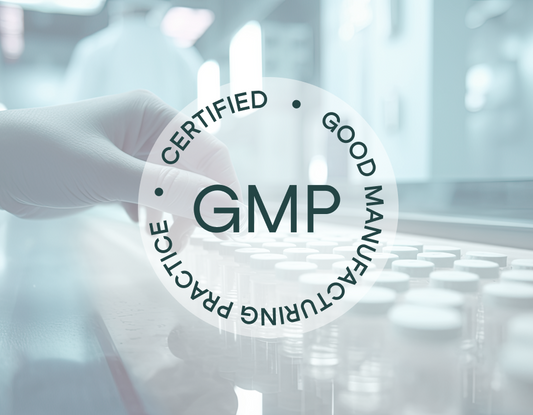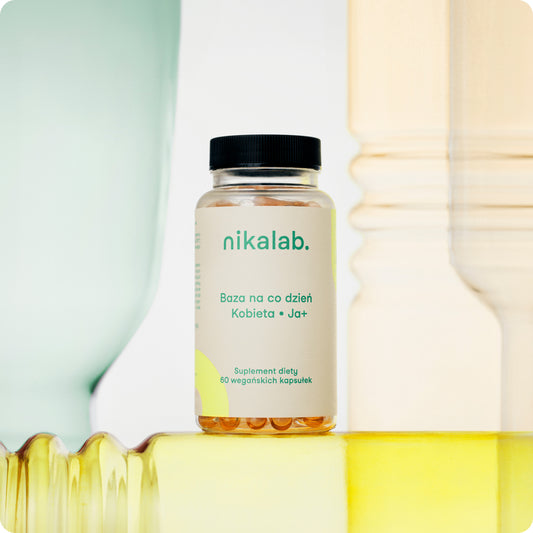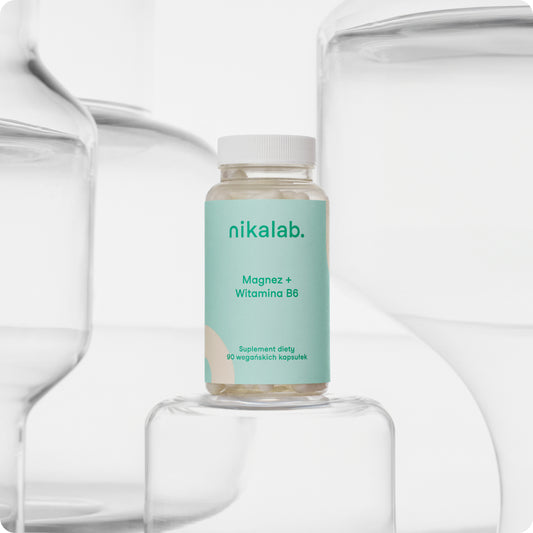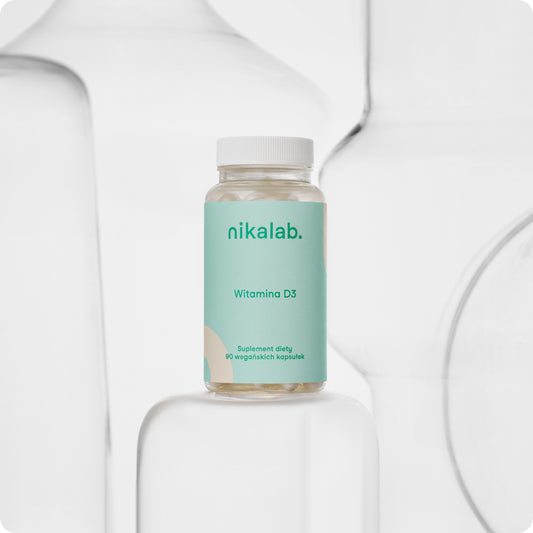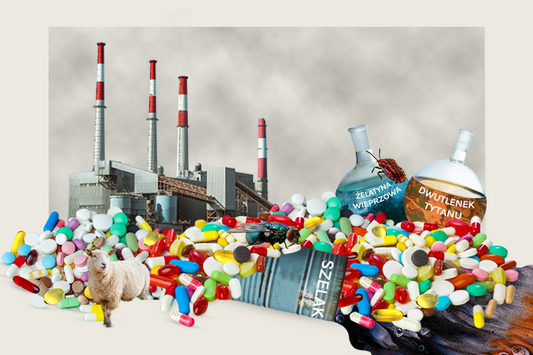
In an interview for nikaMag, gynecologist Mariusz Łukaszuk talks about when to start preparing the body for menopause, how to go through it gently and explains what factors can accelerate or delay it.
Menopause is usually associated with mature women over 50. However, recently we have been hearing more and more about postmenopausal women in their forties. Is today's generation of women ending their periods at a younger age? Was it just not talked about before and that's why we didn't know about it?
bow. med. Mariusz Łukaszuk: We do not know the exact statistics of what it looked like 50 years ago. But today I was looking through data on life expectancy at the beginning of the last century and I must say that the average life expectancy was dramatically shorter - around 35 years (calculated on the basis of parish records in Krakow). Many women did not actually make it through menopause . This is certainly one of the reasons why nowadays it seems to us that the last period may come earlier than before. However, if we compare the numbers, the average time of menopause is similar - around the age of 51 in Poland . 50 is such a borderline age. When it comes to the earlier onset of menopause, here are some reasons why this is so. This may be, for example, premature ovarian failure (premature ovarian failure). This applies to situations when a woman's last menstrual period occurred before the age of 40. The cause may be, for example, fragile X syndrome, which significantly increases the risk of premature menopause.
Does this mean that genetic testing can be done to find out if menopause occurs prematurely?
Not completely. This disease affects approximately 1% of women under the age of 40 and 0.1% of women under the age of 20, because patients with Turner syndrome may either not menstruate at all or menstruate only for a short time. Let me remind you that if the last menstrual period occurs before the age of 40, we are talking about premature ovarian failure, which results in premature menopause . Between the ages of 40 and 45 is early menopause . Standard menopause is 45-55 years of age , and late menopause - after 55 years of age.
What are the causes of early menopause? That is, those aged 40-45.
There are many reasons for this. Every woman has different genetics , so that also affects it. Gynecological surgery accelerates menopause (e.g. removal of the ovaries ), as well as chemotherapy or radiotherapy for other cancers. Environmental factors also affect our endocrine system. Please also remember that the fertility rate in our culture is currently decreasing significantly. It is generally believed that if someone has given birth, the time of menopause is delayed by about a year. If patients have multiple pregnancies , the last menstrual period will probably be delayed for some time. Nowadays, many women either give up conception altogether or decide to have later pregnancies. Later becoming pregnant is more often associated with the use of assisted reproductive techniques . This increases the chances that your last period will appear earlier. Smoking is also a factor that accelerates the appearance of the last menstrual period.
In vitro accelerates menopause?
During preparation for in vitro fertilization , the antral follicles in the ovaries are stimulated . If there are many stimulation attempts, the ovarian reserve may "use up" faster . This means that menopause may appear a little earlier. However, I would like to emphasize that environmental factors, which we often underestimate, are very important and affect many more women than in vitro fertilization.
What specific environmental factors are these and what can we do to prolong menstruation?
It's all about toxins , which are abundant in our everyday lives. Recently, there have been a lot of scientific works on the impact of the so-called endocrine disruptors (EDC, abbreviation: endocrine disruptor chemicals/compounds – ed .), which damage the gonads. The main danger in this respect comes from substances added to plastics that make them plastic, e.g. bisphenol A (BPA) and its various types.
Endocrine disruptors also include substances used in plant protection, i.e. pesticides and substances such as glyphosate . They may have a similar structure to estradiol and may disturb the proper functioning of the hypothalamic-pituitary-ovarian axis.
Another thing that is unfavorable for hormonal health is a diet high in carbohydrates, because it will increase insulin resistance, and with insulin resistance, the functioning of the ovaries is also disturbed, especially in patients with PCOS (polycystic ovary syndrome). Therefore, if we want to reduce the risk of early menopause, we should also take care of our diet . I personally believe that the Mediterranean diet is optimal. The diet should be varied and rich in Omega-3 acids (there should be more of these acids than Omega-6) and antioxidants. This gives you a chance that your menstrual period will be a little longer.
Is it possible to extend the period of menstruation until the age of 70-80?
The number of future egg cells in a woman is formed during her fetal life . This means that when a baby girl is in her mother's womb, she has about 2 million cells, which can later produce eggs. After giving birth, the number of these cells decreases to approximately 400,000. And with each passing day, these cells decrease. So the number of cells a girl has at the very beginning of her life actually determines how long she will menstruate. In other words, if the future mother ate well during pregnancy and had as little contact as possible with the already mentioned endocrine disruptors, there is a greater chance for the proper function of her daughter's ovaries and a greater number of cells in the ovaries from which mature eggs will later emerge, as well as for later menopause. So this intrauterine programming is also very important, although it does not mean that we will maintain menstruation until this late in life.
Will the environmental factors mentioned above - diet, avoidance of toxins and endocrine disruptors - also help you go through menopause more smoothly?
Yes, although the surest way to protect against the troublesome symptoms of menopause is estrogen. And this is the best treatment. If we do not want to use estrogens (although I believe that it is really worth it if there are no contraindications), we can help by supplementing with antioxidants and unsaturated fatty acids (e.g. Omega-3), as well as vitamin D3 . Please also remember that if we gain weight (which often happens during perimenopause), the dose of vitamin D3 must be increased accordingly. We also have a whole range of preparations of plant origin that alleviate the symptoms of menopause to some extent. Additionally, it is worth avoiding spicy food, drinking less coffee, and ensuring proper sleep . Practicing yoga and meditation also have a scientifically proven effect on alleviating menopause symptoms. However, women around 50 have a hard time taking care of themselves due to the multitude of family and professional responsibilities. Of course, a lot here also depends on when the patient became pregnant. If she decided to have a child later, at the age of, for example, 45, then during menopause she may have a preschool-age child who will need a lot of attention from her mother, sometimes not only during the day. In such conditions, it can be difficult to take care of sleep, diet and relaxation. But it's worth trying to do it and take care of yourself holistically . Please also remember that after the age of 40 we can talk about perimenopause .
What does this mean in practice?
At this age, ovarian dysfunction may already occur. There is variability in menstrual cycles . They may first shorten and then lengthen. Several cycles a year may "fall out" altogether. Additionally, we have a reduced amount of estrogen , which causes neurotransmitters to function worse . Virtually every cell in our body has estrogen receptors. When estrogen levels drop, it affects the entire body . After the age of 40, we observe sometimes high and sometimes low levels of the FSH hormone, low levels of the AMH hormone, which indicates the ovarian reserve, and we also most often see a reduced number of antral follicles on ultrasound. From one to three years before the last menstrual period, vasomotor symptoms appear ( hot flashes, night sweats, heart palpitations ). These are the symptoms that most bother patients. However, it is worth realizing that these symptoms manifest themselves only some time after changes inside the body.
What other symptoms may suggest that menopause is approaching?
Patients often do not pay attention to these symptoms, but due to the reduction in estrogen levels, they may include, for example, dry skin, decreased libido, headaches, dry conjunctiva, and sleep disorders . Patients have difficulty falling asleep, wake up at night or wake up feeling unrested in the morning.
Does taking estrogen help get rid of all these symptoms?
It certainly reduces their nuisance and in most cases completely protects them . However, in some patients we also need to implement e.g. aesthetic medicine technologies that will improve skin quality, or anti-androgen preparations that will improve hair quality. But supplementation is also very important . Polyunsaturated fatty acids have a beneficial effect on the quality of skin and nails.
When talking about estrogens, the Doctor means hormone replacement therapy or perhaps also preparations containing isoflavones available on the market?
In theory, isoflavones have a structure similar to estrogens and also act in a similar way. In practice, however, we do not have solid research that would confirm the effectiveness of preparations with isoflavones from soy and red clover. Most isoflavones are made from soy, and the use of soy substances in such quantities is not recommended. Their effectiveness also appears to be slightly higher than placebo. And placebo also works in some patients. There are several preparations on the market that actually have appropriate tests, but they will not work as effectively as estrogens.
When is the best time to start estrogen therapy?
It is now recommended to start hormone replacement therapy much earlier than before . That is, not when hot flashes appear, but on average around the age of 45 . Of course, you need to perform appropriate hormonal tests together with your doctor. Such early initiation of hormone therapy allows us not only to alleviate the symptoms of menopause, but also to reduce the risk of cardiovascular diseases (i.e. reduce the risk of heart attacks and strokes, which quite often occur in postmenopausal women). It also helps reduce the symptoms of fatigue syndrome, brain fog, supports good mood and reduces the risk of depression and osteoporosis.
Is it safe to use hormone replacement therapy?
Around the year 2000, a scientific study by WHI (Women's Health Initiative) appeared, after which everyone stopped using hormones. This resulted from the fact that journalists began to publish incomplete data , which allegedly showed that hormone replacement therapy increases the risk of breast cancer and strokes.
Indeed, many women are afraid of hormone therapy because breast cancer is often estrogen-dependent. So taking estrogen may be associated with cancer. Wrong?
We now know that the WHI research study was poorly conducted . The Americans administered not natural estrogens, but conjugated horse estrogens, and they did it ad hoc. For example, a patient 20 years after menopause received hormones, which resulted in a stroke or death. This study was not fully thought out and the data were not analyzed thoroughly , but the media immediately spread the zero-and-one message that hormone replacement therapy equals breast cancer, a heart attack or a stroke. Everyone got scared. But now all the data has been recalculated and the previous conclusions turned out to be false. Among others It turned out that if patients after having their ovaries removed start using hormone replacement therapy, the risk of breast cancer is lower than standard . If we include natural progesterone, the risk does not increase after 5 years of hormone therapy. After 5 years, the rate of breast cancer increases slightly, certainly less than in the case of patients who smoke cigarettes. We need to approach this rationally and trust the latest publications that say that we do not grow cancer by taking estrogen during perimenopause as we previously thought.
If we start hormone replacement therapy before menopause, do we have to continue it until the end of our lives?
There was once a recommendation that estrogens should be taken only for 5 years and that's it. Now it is not known when the patient will finish this hormone replacement therapy. Of course, after 5 years, the patient must be informed that the risk of breast cancer may be slightly increased (although it does not have to be). I have a patient who is 82 years old and who has been using hormone replacement therapy since 1987. The lady said that she would use it for the rest of her life because, and I quote, "she doesn't want to behave like her friends with whom you can't get along." Regarding the duration of hormone therapy, 5 years is usually enough to overcome the period of vasomotor symptoms. However, there are also patients who need longer hormone therapy and then extend it.
Although I would like to draw women's attention to one more thing. We often talk about what patients feel, but much less about the changes that take place in their bodies , which cannot be seen with the naked eye. When there is too little estrogen in the body, osteoporosis accelerates . Hormone therapy has a scientifically proven protective effect on bones . Many people experience bone fractures later in life, often femur fractures, from which it is very difficult for patients to recover. Hormone therapy also has cardioprotective effects . Estrogens improve blood flow not only in the vessels, but also in the microcirculation of the heart. If we start hormone replacement therapy earlier, atherosclerotic plaques form more slowly. The risk of central obesity is also reduced . After menopause, the distribution of fat tissue changes completely, and women often experience the so-called “oponka”. Fat actually generates inflammation, which increases the appearance of atherosclerotic plaques. Estradiol has a general anti-inflammatory effect on the body.
And if menopause has already occurred, are there any health problems that may unpleasantly surprise a woman?
Unfortunately yes. After menopause, processes that start earlier - before the last menstrual period - become more and more intense. The body experiences an increasing estrogen deficit . In addition to the fact that the skin becomes dry, symptoms in the urogenital area intensify. The so-called urinary frequency , i.e. frequent need to urinate, not resulting from retention of urine. It's about frequent pressure on the bladder that interferes with normal functioning. This patient may also wake up frequently at night to urinate. Of course, it may be related to heart disease, but it also functions as a separate postmenopausal symptom. Of course, another thing is the dryness of the vagina and urethral area , which is very disturbing not only during intercourse. Patients often complain of dryness, itching and burning and therefore become very worried. In this situation , intimate infections may also occur more often. This is all related to the lack of estrogen. Receptors for them are everywhere, and there are especially many of them around the urethra. After menopause, when this mucosa is not stimulated by estrogen, it thins and probiotic bacteria have no conditions to reproduce. As a result , the diversity of the vaginal microbiota decreases and the above-mentioned intimate infections appear.
Is there any way to support the urogenital area, apart from using hormone replacement therapy?
If the patient does not want or cannot take systemic hormonal therapy, we can locally administer preparations with estradiol, estriol or dehydroepiandrosterone in pessaries or creams. However, it is better to start doing it a little earlier than after menopause. Hyaluronic acid and various energy-based technologies will also be helpful. The most researched technology is laser therapy , e.g. the Mona Lisa Touch treatment, radiofrequency, concentrated ultrasound (HIFU) . This is one procedure. And the second type is more procedural - e.g. vaginal mesotherapy with preparations with hyaluronic acid , treatments with platelet-rich plasma or the so-called nano fat (substances obtained after collecting a certain amount of fat, we try to isolate as many stem cells from it as possible).
Are there any ways to deal with low libido after menopause?
This is a very common symptom reported by patients. After menopause , the intensity of sensations during intercourse also decreases . Estrogens alone, i.e. hormone replacement therapy, can correct the situation. We also use dehydroepiandrosterone and testosterone in some patients, which also significantly improves skin quality and libido. However, acne may appear with this type of therapy and in this case the patients are not entirely satisfied. A very important aspect is cognitive behavioral therapy , which can also improve libido and reduce other symptoms of menopause. To sum up - hormone replacement therapy is a panacea , although of course not for everyone , because, for example, in the case of hormone-dependent cancers or predispositions to thromboembolic diseases, we cannot use it. In any case, it is worth consulting this issue with your gynecologist.

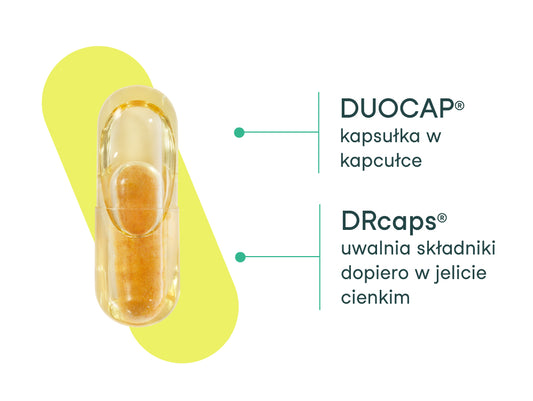
What makes our capsule stand out?
The nikalab capsule impresses not only with its appearance, but also with its operation. We used two innovative...
